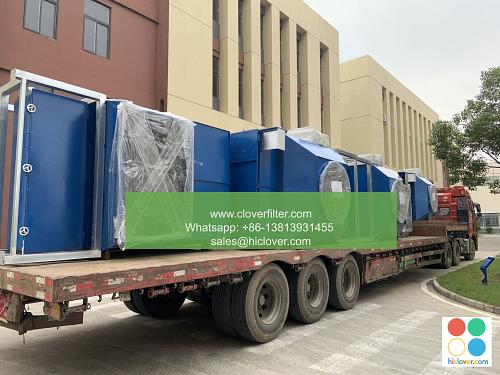The Role of Air Filters in Reducing Indoor Odors

Indoor air quality is a significant concern for many individuals, and one of the primary contributors to poor air quality is unwanted odors. These odors can originate from various sources, including pets, cooking, mold, and mildew. In this article, we will delve into the importance of air purification systems and air filters in reducing indoor odors, exploring their applications in residential, commercial, and industrial settings.
Understanding Indoor Odors
Indoor odors can be caused by a variety of factors, including poor ventilation, high humidity, and the presence of pollutants. These odors can not only be unpleasant but also aggravate respiratory issues such as asthma and allergies. Moreover, persistent odors can lead to a decrease in indoor air quality, making it essential to implement effective odor-reducing measures.
The Functionality of Air Filters
Air filters play a crucial role in reducing indoor odors by capturing and removing airborne particles and gases. These filters can be integrated into heating, ventilation, and air conditioning (HVAC) systems or used as standalone air purifiers. The most effective air filters for odor reduction are those with activated carbon or HEPA filtration systems, which can capture 99.97% of particles as small as 0.3 microns.
Application Areas for Air Filters
The use of air filters in reducing indoor odors is not limited to a single application area. Instead, they can be employed in various settings, including:
- Residential settings: Homes, apartments, and condos can benefit from the use of air filters to reduce odors caused by pets, cooking, and mold.
- Commercial settings: Office buildings, restaurants, and shopping centers can use air filters to minimize odors and improve indoor air quality.
- Industrial settings: Factories, warehouses, and manufacturing facilities can employ air filters to reduce odors caused by chemicals, machinery, and other industrial processes.
Benefits of Using Air Filters
The incorporation of air filters into indoor air quality management systems can have numerous benefits, including:
- Improved indoor air quality: Air filters can capture and remove airborne pollutants, leading to a significant improvement in indoor air quality.
- Reduced odor complaints: By eliminating the source of odors, air filters can minimize complaints and create a more comfortable indoor environment.
- Increased energy efficiency: Air filters can help reduce the load on HVAC systems, leading to increased energy efficiency and lower utility bills.
Conclusion
In conclusion, air filters play a vital role in reducing indoor odors and improving indoor air quality. Their applications in residential, commercial, and industrial settings make them a versatile and effective solution for odor reduction. By understanding the functionality and benefits of air filters, individuals can take the first step towards creating a healthier and more comfortable indoor environment. Whether you’re looking to reduce pet odors, cooking smells, or industrial pollutants, air filters are an essential component of any indoor air quality management system. It seems like you didn’t include a prompt for me to respond to. Could you please provide more details or clarify what you would like to talk about? I’m here to help with any questions or topics you have in mind!

